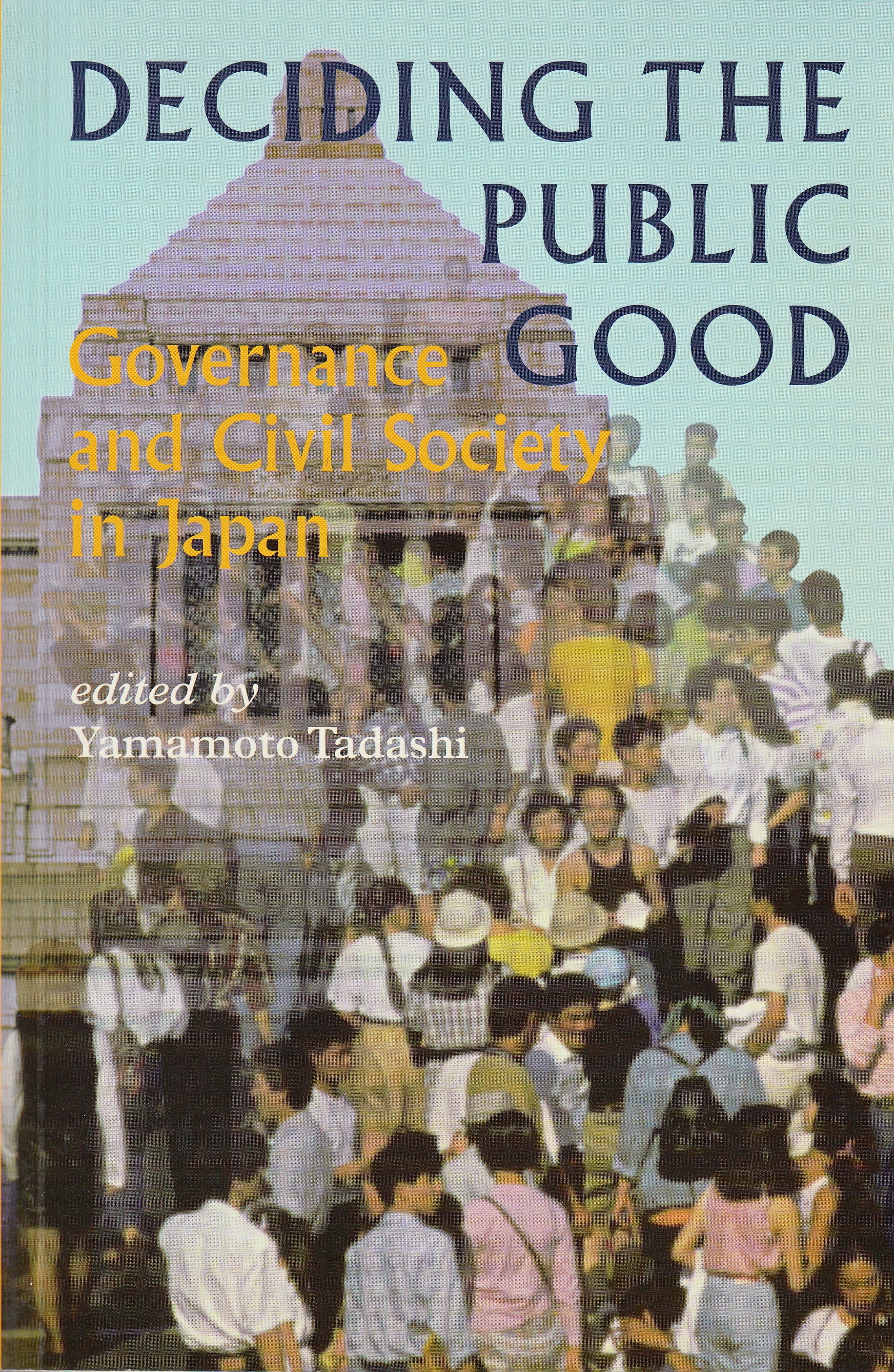The emergence of civil society in Japan, a society where the bureaucracy has traditionally monopolized the determination of the public interest, is the subject of a groundbreaking volume from the Japan Center for International Exchange (JCIE).
The JCIE study examines anew the problems stemming from the Japanese tradition of authoritarian rule by bureaucracy and reveals a rising civic consciousness that suggests Japanese citizens are re-appraising for themselves whether the interests of the bureaucracy are being placed above the public good.
Until now, Japan’s central government bureaucracy has maintained a virtual monopoly on decision-making authority and jurisdiction over the public interest—it has seen itself as the guardian of the public interest. The subordination of society to the state, a prominent feature of modern Japan, has been taken for granted by all segments of society.
But the governing apparatus established as Japan began modernizing 130 years ago is beginning to show signs of institutional fatigue and operational dysfunction. In fact, the “public-equals-official” governing system is badly shaken and visibly crumbling. Recent political shifts and economic restructuring are closely related to the collapse of the bureaucracy-driven system.
The fissures in the public-equals-official edifice that were brought to light in the mid-1990s resulted from the maturation of society and the “relativization” of government, the recognition that government can no longer be responsible for everything in society. Today, a concerned public is asking, What is in the public interest? Who defines the public interest? Who should serve the public interest? This national soul-searching reflects civil society’s increasingly active role in responding to pluralistic social needs and as an effective innovative force for social change.
For civil society organizations in Japan, the galvanizing event of the 1990s was the Great Hanshin-Awaji Earthquake of 1995. The impressive on-site relief work of more than 1.3 million volunteers and NGOs touched off a movement that led to the passage of landmark legislation in 1998 to facilitate the establishment of civil society organizations and give them greater autonomy from the government.
These trends are reflected in the growing awareness that citizens in Japan—as individuals and in groups—must be actively involved, alongside the government, to promote those aspects of life carried out for the common good. There is in fact now a lively debate on the very definition of “public” or common interest, and this rise in public consciousness has gone hand in hand with a growth in citizens’ activism.
Written by six leading thinkers in diverse academic disciplines and professional fields, Deciding the Public Good: Governance and Civil Society in Japan provides a comprehensive perspective on the changing nature of governance and the evolution of the role of civil society in Japan.
Individual chapters highlight different dimensions of the dynamic between the traditional form of bureaucratic governance and the rise of civil society in Japan. Shin’ichi Yoshida (Senior Political Correspondent and Columnist at the Asahi Shimbun) analyzes new challenges to the traditional pattern of governance; Iokibe Makoto (Professor at the Department of Law of Kobe University) discusses the historical evolution of “official” and “private”; Tadashi Yamamoto (President of JCIE) traces the development of civil society, its impact on governance, and its future challenges; Hiroko Ota (Associate Professor at the National Graduate Institute for Policy Studies) examines the roles of the public and corporate sectors and civil society in managing the economy; Akira Iriye (Professor of History at Harvard University) elaborates on the role of nonstate actors in the process of globalization; and Jun Wada (Chief Program Officer and Director for Research Planning at JCIE) provides bibliographical and statistical data on Japanese civil society.
Deciding the Public Good: Governance and Civil Society in Japan is the English-language version of the Japanese volume, Kan kara min e no pawaa shifuto, published by TBS-Britannica in September 1998.
Contents
- 1. Rethinking the Public Interest in Japan: Civil Society in the Making
- Yoshida Shin’ichi, Senior Political Correspondent and Columnist, Asahi Shimbun
- 2. Japan’s Civil Society: An Historical Overview
- Iokibe Makoto, Professor of Law, Kobe University
- 3. Emergence of Japan’s Civil Society and Its Future Challenges
- Yamamoto Tadashi, President, JCIE
- 4. Sharing Governance: Changing Functions of Government, Business, and NPOs
- Ota Hiroko, Associate Professor, National Graduate Institute for Policy Studies
- 5. Nonstate Actors as Forces of Globalization
- Iriye Akira, Professor of History, Harvard University
- 6. Civil Society in Japan through Print and Statistical Data
- Wada Jun, Chief Program Officer and Director for Research Planning, JCIE
- 7. Index

